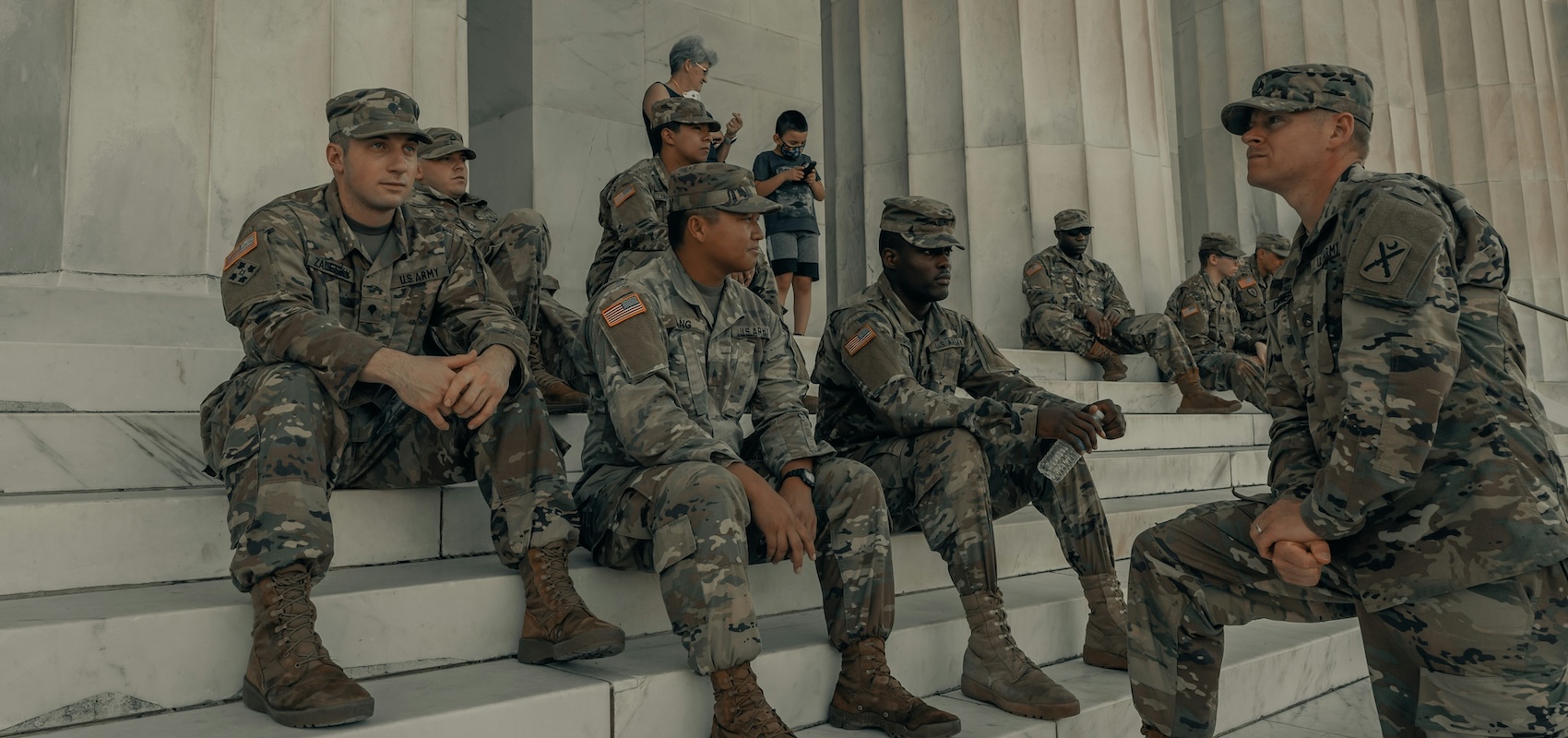
The true soldier fights not because he hates what is in front of him, but because he loves what is behind him,” G. K. Chesterton wrote in 1911. This timeless insight cuts to the heart of why we defend our nation.
As the Department of Defense finalizes the drafting of the 2026 National Defense Strategy (NDS)—due on Secretary Hegseth’s desk later this month—it must answer a fundamental question: What do we love? A clear, unapologetic articulation of American values—starting with religious freedom—should anchor this critical document.
An updated NDS should declare religious freedom a vital national interest, signaling to adversaries and allies alike what we believe. Religious freedom, enshrined in the First Amendment’s opening clauses, is a cornerstone of American identity. It is not merely a legal protection but a moral commitment to the dignity of every individual’s conscience.
From the Pilgrims fleeing persecution to the diverse faiths that thrive in our nation today, religious liberty has shaped our character and resilience. Yet it faces growing threats—both from authoritarian regimes abroad and from cultural pressures at home that seek to marginalize faith. Religious freedom offers a powerful starting point in any articulation of American values. It reflects our commitment to a society where all can worship—or not—without fear. It counters the narratives of authoritarian regimes that suppress belief to control populations.
And it reminds us that our strength lies not just in our arsenal but in the ideals that bind us.
The last NDS update, in 2022, leaves much to desire on this score. It vaguely referenced defending American values as a vital national interest but failed to articulate any—including religious liberty. It should come as no surprise. The same year, the DoD inspector general identified a “trend” of official disregard for troops’ religious freedom, a bedrock American value. Military authorities fared poorly in the courts in a wave of Covid-era religious freedom litigation, and Congress was forced to act—rescuing DoD officials—by rescinding the mandate that caused widespread burdens of conscience, the source of public outcry. In recent memory, it seems, religious freedom has not just been ignored by defense officials, but disfavored.
This unfortunately reflects a defense culture increasingly unmoored from the ideals of America’s founding, a reality compellingly documented in a 2021 book by Matthew Lohmeier. Lohmeier was fired by the Space Force for his work at the time, but was recently appointed undersecretary of the Air Force by Trump. As his promotion makes clear, the errors of the recent past need not be repeated in the future.
Vice President JD Vance raised a similar challenge to America’s NATO allies earlier this year, calling them to articulate the “positive vision” behind our shared security compact. At the February security conference in Munich, he said: “I’ve heard a lot about what you need to defend yourselves from, and, of course, that’s important. But what has seemed a little bit less clear to me and certainly, I think, to many of the citizens of Europe, is what exactly it is that you’re defending yourselves for.”
Vance’s candor unsettled some, but it was a necessary prod, one whose implications should be reflected in our own defense strategy.
Some may question the purpose of articulating values in defense strategy, seeing it as distracting from questions of armaments or geopolitics, needlessly polarizing, or even an unwise flirtation with nation-building in America’s image, a doctrine the DoD should not hasten to revive. Yet strategy, in its essence, is concerned with the link between means and ends. Since the conclusion of the Cold War, the defense policy establishment has had no difficulty in expounding in great detail upon the means of power in our nation’s hands, yet it has largely ignored questions of ends as fundamental as Vance’s. The 2026 NDS offers an opportunity to correct this lacuna.
Such a recitation of values in the forthcoming NDS need not be lengthy, but the alternative—vague platitudes or silence about our own national raison d’être—risks amnesia, breeds confusion, weakens resolve, and saps confidence. As Vance implied in Munich, Europe’s drift toward so-called value-neutral security policies is actually closer to nihilism than neutrality, and has left its citizens and allies questioning what their sacrifices are for. The administration has already admirably prioritized religious freedom in other sectors of government. The 2026 NDS must not follow Europe’s suit.
Chesterton’s soldier fights for love of home, faith, and freedom. An updated NDS should articulate that love, boldly naming religious freedom as an American value at the heart of the interests it defends. Our nation, and the world, will be stronger for it.
An Important Civics Lesson, Well Taught
The permanent exhibit in the rotunda of the National Archives in Washington, D.C., includes original copies of…
Undermining the Church’s Public Witness
Bishop Thomas J. Paprocki recently wrote in these pages that the Archdiocese of Chicago’s plan to grant…
The Cambrian Implosion
A historical moment ago, it was too obvious for words, but: Life is a blessing. So to…
